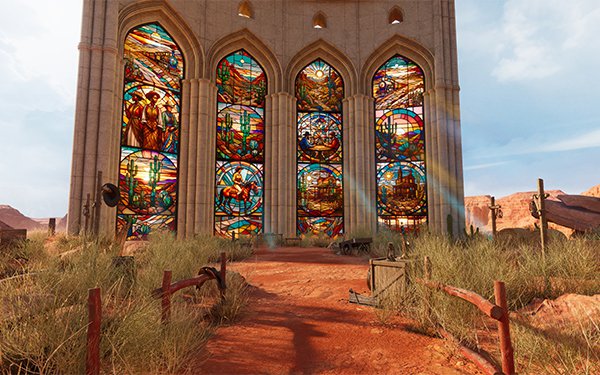
In an effort to capture the attention of a younger
generation of consumers, Walmart is expanding its concept of virtual shopping with “Walmart Realm,” an immersive world that invites customers
to purchase items directly inside different virtual spaces curated by real-world influencers.
Built on the Emperia platform -- which has hosted immersive virtual shopping experiences for
brands like Tommy Hilfiger, Lacoste, and L’Occitane -- Walmart Realm currently includes three distinct
experiences created around current social media aesthetic trends: Mai Pham’s “So Jelly” invites consumers to purchase items in seashells under the ocean; Mackenzie and Malia’s
“Y’allternativer,” “where the wild west meets gothic glam;” and Nava Rose's “Go Chromatic,” a “melted metallic world.”
advertisement
advertisement
Consumers can move
through each shop, using the mouse pad for an 180-degree view and viewing featured items across beauty, fashion and home. Clicking on an item adds it to the customer’s cart, allowing them to
make a purchase directly from Walmart’s online store.
The shops also feature a gamified option marked by “sparks” or the floating Walmart symbol, which visitors can collect
to win prizes.
The products being featured align with each virtual store's unique theme (neon translucent handbags in “So Jelly”; a bolo tie and denim jumpsuit in
“Y’allternative”) and were selected by the hosting creator.
Beginning in July, Walmart has plans to keep expanding the platform to feature more storefronts and partnerships
with influencers, with additional plans for holiday-special storefront and more.
“At Walmart, we're embracing innovation with e-commerce experiences designed with the virtual world at
the heart,” said Walmart's CMO William White in a LinkedIn post.
This is not Walmart's first foray into virtual commerce. In 2022, the retailer launched two experiences in metaverse
gaming platform Roblox called Walmart Land and Universe of Play.
However, the following year Walmart yanked its Universe of Play
experience from the platform after Truth in Advertising (TINA) and three other consumer groups labeled it an “advergame” that exposed young children to deceptive marketing.
The
company then released Supercampus, a gamified back-to-school adventure in which Roblox players ages 13 and up could interact with branded game elements from BIC Highlighters, Crayola Crayon and 3M's
Post-it Notes.
Last month, the company also introduced the ability to try on virtual versions of real-life products in Roblox with the option to buy those products directly from within the
gaming platform.